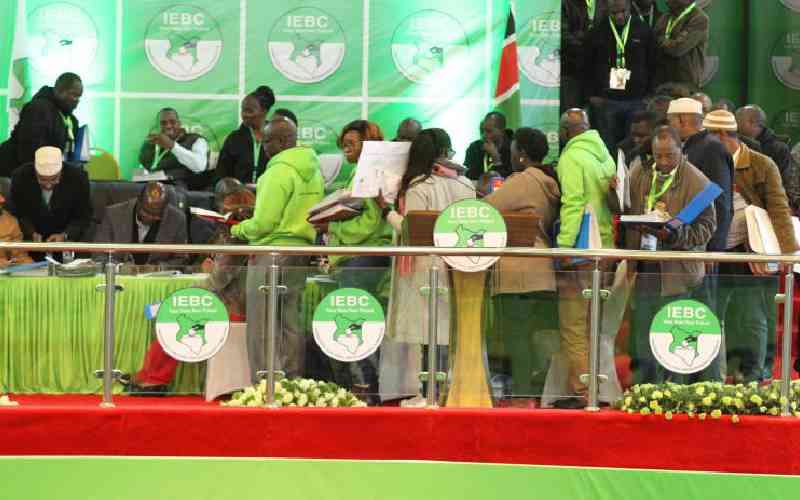×
The Standard e-Paper
Smart Minds Choose Us

Wafula Chebukati said the IEBC's independence was threatened through ethnic profiling, open threats to commissioners, abduction and illegal detention of staff by state security at the Bomas of Kenya, Nairobi and in county and constituency tallying centres. [Elvis Ogina, Standard]
Electoral commission chairperson Wafula Chebukati yesterday said the agency has written to President William Ruto seeking an inquiry into the process leading to the declaration of presidential election results.